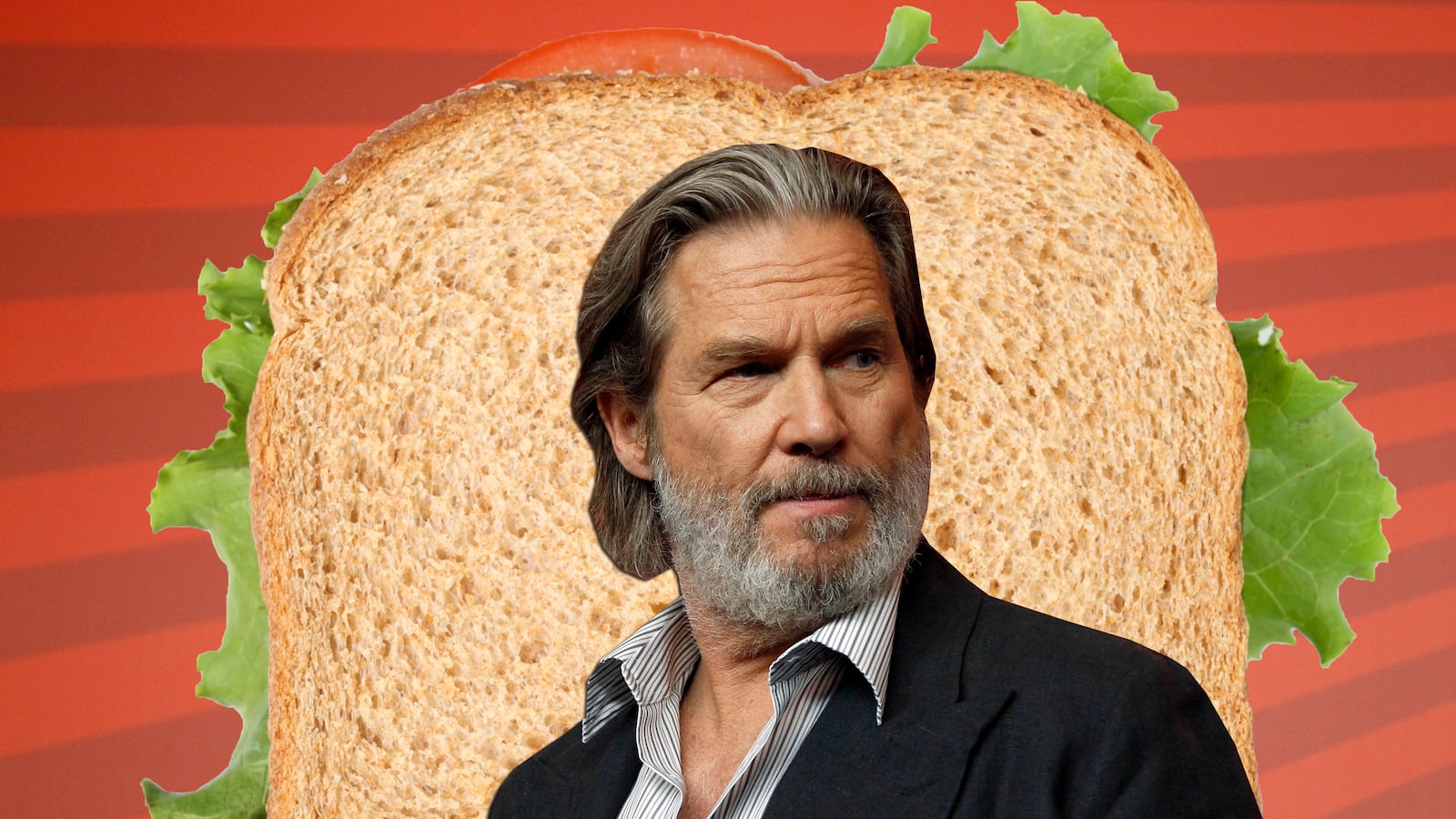Oscar-winning actor Jeff Bridges has never been to Arkansas, a state that ranks among the worst for childhood hunger and is a long way from Hollywood geographically and culturally. Bridges will make his first trip there Monday to highlight a new initiative dubbed Breakfast After the Bell, which has boosted the percentage of kids in Arkansas getting the morning meal to almost 60 percent of those eligible for the government benefit.

Moving breakfast to the classroom removes the stigma for kids otherwise having to catch an early bus and sit in the cafeteria by themselves. Setting 10 minutes aside at the start of school has a leveling effect, and teachers initially worried about spilled milk taking away from instruction time find that’s not been an issue, and the shared meal has a bonding effect.
Nationally, one out of five children experience what is now called food insecurity. “It’s a very patriotic issue,” says Bridges. “To have our children in this condition, one in five struggling with hunger is unpatriotic.”
Half the students who qualify for free or subsidized breakfasts choose not to get them because of the stigma, or the early-hour logistics. Breakfast After the Bell aims to narrow the gap between the 11 million currently receiving the morning meal and the 21 million that routinely access the school-lunch program.
Some politicians might not find that a worthy goal. The once-bipartisan politics around government feeding programs, from school lunches to food stamps, has grown sharply partisan over the last four years, since the advent of the Tea Party, and more cuts loom even as the need increases. Half of the 47 million on SNAP (Supplemental Nutrition Assistance Program) are children.
Republican Budget Chairman Paul Ryan says the federally subsidized school-lunch program offers “a full stomach and an empty soul.” At the recent CPAC (Conservative Political Action Committee) meetup, he told the story of a young boy who longed for lunch in a brown paper bag, a symbol that somebody cared about him, Ryan said, “what the left does not understand.” The story proved fictional, prompting Ryan to take it back but not to concede his basic point about the soullessness of government assistance.
States frantically trying to compensate for the recent cuts in food stamps were accused by Speaker John Boehner Thursday of “gaming the system” by boosting home heating assistance to trigger additional food stamps for residents. Bill Shore, founder of Share Our Strength, the nonprofit sponsoring the breakfast initiative, says that by keeping the focus on children—hungry children—he hopes to rebuild the partisan support that existed when Democrat George McGovern and Republican Bob Dole co-sponsored food-stamp legislation and Republican governors like Tommy Thompson of Wisconsin, John Engler of Michigan, and George Pataki of New York were its biggest advocates.
Governors are key to ending food insecurity, and a handful of them are making it a priority, with California, Colorado, Maryland, and Arkansas taking the lead on the Breakfast After the Bell program. In advance of his visit to Arkansas on Monday, when he will visit a classroom, Bridges told The Daily Beast in a phone interview, “I’m on some of the kids’ radar.” He cited the 3-D action-adventure TRON: Legacy, and the animated film Surf’s Up, where he voiced the Big Z, a large surfing penguin.
Visiting a state he’s never been in to promote a program he cares about is exciting to him, he said. “It makes me feel good to use my talents.” He and Shore will meet with school superintendents from around the state to talk up the breakfast program, and then participate in an armchair discussion at the Clinton School of Public Service with Gov. Beebe.
Bridges signed on in 2010 as the national spokesman for the No Kid Hungry campaign launched by Share Our Strength, but his work on the issue goes back more than three decades. In 1983, he produced a three-hour live television broadcast focusing on world hunger, featuring such stars as Gregory Peck, Jack Lemmon, and Burt Lancaster. In 1996, he produced Hidden in America, a film starring his brother Beau, about the plight of the working poor in America. “I’m really proud of that film,” he said. “Sadly, it’s just as applicable today as when I made that film 20 years ago.”
Asked about the hurdles he has encountered over the years in publicizing the issue of hunger, Bridges responds, “It’s not a sexy issue—and people don’t like to think they live in a country where one in five children go hungry. It’s kind of embarrassing for both sides. People struggling with hunger don’t like to admit it, and those of us who are living fun lives don’t like to acknowledge it.
“It’s not that we didn’t know how to end the problem,” he says. “What was missing is the political will, so I asked myself what I was willing to do. I’m involved in the entertainment business, I deal with the media, I can do my part spreading the word.”
Getting attention for a problem that’s hiding in plain sight is what Breakfast After the Bell is attempting to do. The program is “well synced,” according to Shore, with first lady Michelle Obama’s emphasis on nutrition. The first lady last month said, “Research shows that kids who eat breakfast in the classroom perform 17.5 percent better on math tests.” Eating healthy first thing carries over for the rest of the day, says Bridges. “Kids are less likely to grab a Big Gulp and bag of chips.” Those are not intended as fighting words, but they are at the crux of the debate over how we feed our children and whose responsibility it is to see they eat healthily.






